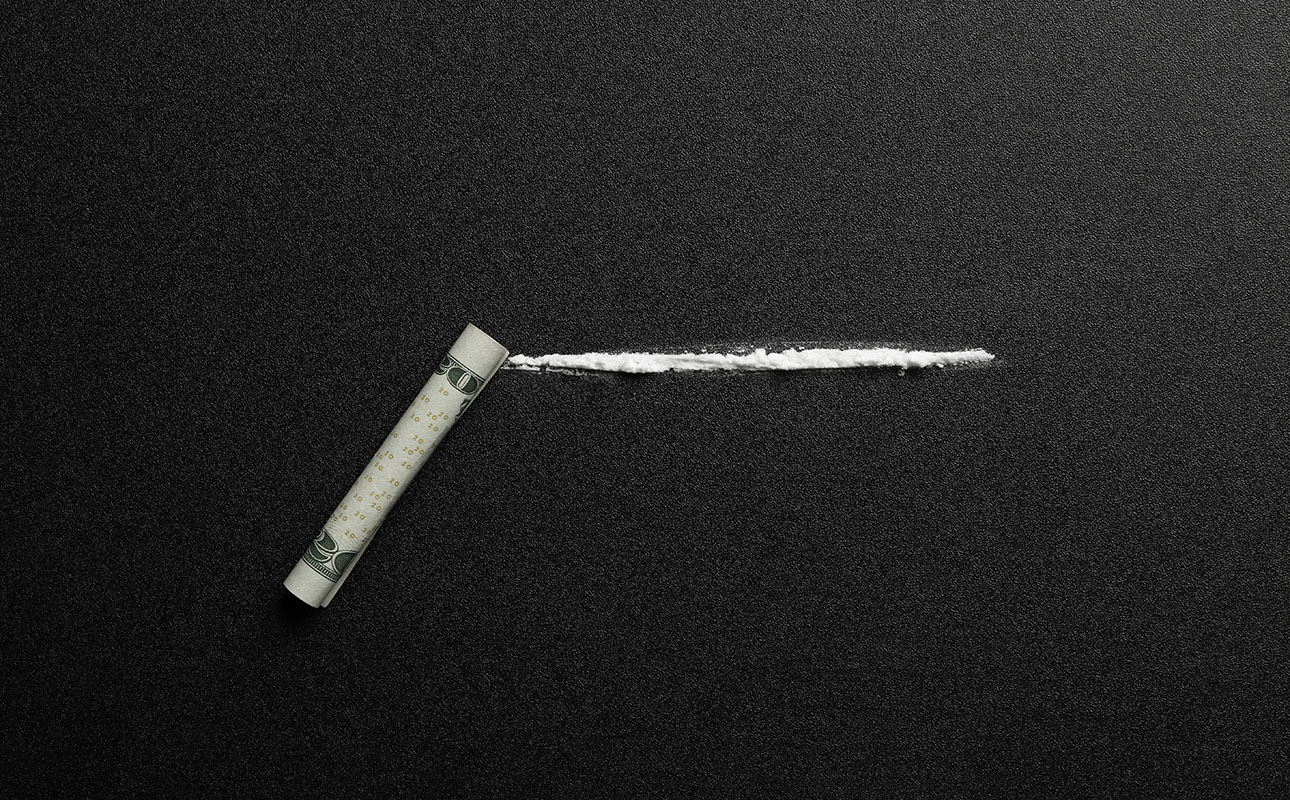Overcoming an addiction to any substance isn’t easy by any means and can be a different experience for everyone. Withdrawal symptoms vary depending on the substance you’re addicted to, some people require long term inpatient treatment, and some people can find success in sobriety by going to only outpatient treatment. If you or a loved one are starting down the path of addiction treatment for cocaine, keep reading for some insight on what you’ll be going through.
But First, What is Cocaine?
Cocaine, also referred to as “coke”, is an illegal drug that is the second-most popular recreational drug in the world after cannabis. Derived from coca leaves, the drug is most commonly used in powder or crystal form and can cause short-lived high energy, intense joy, and decrease feelings of pain. It is also highly addictive, and many users report feeling surprised after how few repeat uses it took to start craving the drug.
A major issue facing many cocaine users today is that the drug is readily available and considered socially acceptable in many social circles. This stems from the drug’s peak use in the 1980s, but it remains high today. Long-term users in particular who are trying to quit may face a peculiar set of social challenges as a result, and many feel pressured to either keep using or be faced with changing jobs or social groups.
That said, cocaine is considered to be a dangerous drug, and long-term use can cause serious damage to the brain, heart, nasal passageway, veins and other parts of the body. Overdose on cocaine is possible, as users often keep increasing the amounts they use (and the frequency). The National Institute on Drug Abuse also reports that long-term users become less able to experience natural feelings of joy and happiness, because the neuron receptors in the brain begin to adapt to cocaine instead. While this can sound scary, the good news is that by understanding how cocaine works, we can find the key to learning how to beat addiction.
Signs and Symptoms of Abuse
“Am I actually addicted to cocaine?” is a common question that many users ask themselves repeatedly before recognizing they actually have a problem. The truth is that this form of drug abuse can result in a variety of signs and symptoms:
- Long periods of alertness or staying awake
- Difficulty sleeping
- Paranoia
- Dilated pupils
- Loss of appetite or changes in eating habits
- Schedule changes / frequent inability to be on time
- Extreme excitement
- Irritability
- Anxiety
- Depression
- Confusion
- Nasal problems
Long-term use (as well as high amounts of cocaine done at once) can also result in a range of even more serious issues, including both legal problems and detrimental health effects. Users may experience headaches, heart palpitations, increased blood pressure, nausea, and/or fever-like symptoms. Some people may also experience seizures or even slip into a coma. All of these signs and symptoms can indicate an overdose and should receive medical attention as soon as possible, followed by entry into an addiction treatment program.
How To Quit
Recovering from a cocaine addiction can be challenging, but it is far from impossible. The fact that you are reading this already indicates that you recognize there is a problem, and that is the first and biggest step in quitting. Be proud of yourself for wanting help!
The next steps involve actually overcoming your cocaine addiction. While ceasing use is obviously the biggest part in this, many people struggling with cocaine addiction find it useful to do some mindful thinking about how their addiction came about in the first place. For example, many users report that the first cocaine high was the strongest, most pivotal one they experienced. Their subsequent use was then often an attempt to recapture that feeling, but they later recognized that reaching it was impossible.
Many people also first used cocaine in social settings, where they wanted to fit in with the group and strengthen their bond with certain people. In this case, it’s important to recognize that interacting with groups who support unhealthy activities like cocaine use is not in your best interest, and you should surround yourself with friends and family members who actually care about your help and support your decision to quit.
When it comes to actually stopping cocaine use, it’s strongly recommended that you do so in a medical setting and/or have medical professionals nearby who can help you. As you’re probably aware, quitting almost any drug can result in withdrawal symptoms. These may include:
- Headaches
- Nausea
- Anxiety / Depression
- Sweating / Chills
- Auditory / visual hallucinations
- Fatigue
- Changes in eating habits
It’s important to realize that, while unpleasant, all of these symptoms are temporary and will go away. The best way to manage them is by going through an established cocaine addiction treatment program with caring staff members who will ensure your safety. In order to help prevent relapse and achieve long-term recovery, it is also important that you participate in therapy, surround yourself with healthy, positive people, and avoid triggers that can cause future drug abuse.
Need Help? We Got You Covered
You don’t have to go through quitting cocaine alone. At True Help Addiction Treatment Solutions, we offer free addiction treatment placement that can pair you up with the right program. We will be there for you throughout your time in treatment, offering support every step of the way. We strongly believe that having a solid support network is key to ending drug abuse and achieving long-term sobriety.
If you have a loved one who is struggling with drug abuse, we also offer intervention services that can help. Contact us today to learn more.





